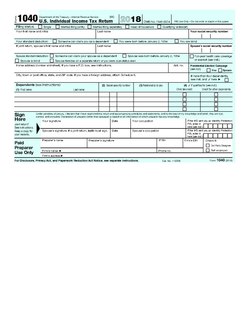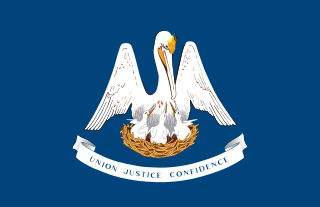
Form 1040 an IRS tax form used for personal federal income tax returns filed by United States residents. The form calculates the total taxable income of the taxpayer and determines how much is to be paid or refunded by the government.

The United States of America has separate federal, state, and local governments with taxes imposed at each of these levels. Taxes are levied on income, payroll, property, sales, capital gains, dividends, imports, estates and gifts, as well as various fees. In 2010, taxes collected by federal, state, and municipal governments amounted to 24.8% of GDP. In the OECD, only Chile and Mexico are taxed less as a share of their GDP.
An income tax is a tax imposed on individuals or entities (taxpayers) that varies with respective income or profits. Income tax generally is computed as the product of a tax rate times taxable income. Taxation rates may vary by type or characteristics of the taxpayer.
Under United States tax law, itemized deductions are eligible expenses that individual taxpayers can claim on federal income tax returns and which decrease their taxable income, and is claimable in place of a standard deduction, if available.
A pay-as-you-earn tax (PAYE) or pay-as-you-go is a withholding tax on income payments to employees. Amounts withheld are treated as advance payments of income tax due. They are refundable to the extent they exceed tax as determined on tax returns. PAYE may include withholding the employee portion of insurance contributions or similar social benefit taxes. In most countries, they are determined by employers but subject to government review. PAYE is deducted from each paycheck by the employer and must be remitted promptly to the government. Most countries refer to income tax withholding by other terms, including pay-as-you-go tax.

Most individual U.S. states collect a state income tax in addition to federal income tax. The two are separate entities. Some local governments also impose an income tax, often based on state income tax calculations. Forty-three states and many localities in the United States may impose an income tax on individuals. Forty-seven states and many localities impose a tax on the income of corporations.
A tax refund or tax rebate is a payment to the taxpayer when the taxpayer pays more tax than they owe.
For households and individuals, gross income is the sum of all wages, salaries, profits, interest payments, rents, and other forms of earnings, before any deductions or taxes. It is opposed to net income, defined as the gross income minus taxes and other deductions.
Income taxes in the United States are imposed by the federal, most state, and many local governments. The income taxes are determined by applying a tax rate, which may increase as income increases, to taxable income, which is the total income less allowable deductions. Income is broadly defined. Individuals and corporations are directly taxable, and estates and trusts may be taxable on undistributed income. Partnerships are not taxed, but their partners are taxed on their shares of partnership income. Residents and citizens are taxed on worldwide income, while nonresidents are taxed only on income within the jurisdiction. Several types of credits reduce tax, and some types of credits may exceed tax before credits. An alternative tax applies at the federal and some state levels.
Income taxes in Canada constitute the majority of the annual revenues of the Government of Canada, and of the governments of the Provinces of Canada. In the fiscal year ending 31 March 2018, the federal government collected just over three times more revenue from personal income taxes than it did from corporate income taxes.
Internal Revenue Service (IRS) tax forms are forms used for taxpayers and tax-exempt organizations to report financial information to the Internal Revenue Service of the United States. They are used to report income, calculate taxes to be paid to the federal government, and disclose other information as required by the Internal Revenue Code (IRC). There are over 800 various forms and schedules. Other tax forms in the United States are filed with state and local governments.
The Oregon tax rebate, commonly referred to as the kicker, is a rebate calculated for both individual and corporate taxpayers in the U.S. state of Oregon when a revenue surplus exists. The Oregon Constitution mandates that the rebate be issued when the calculated revenue for a given biennium exceeds the forecast revenue by at least two percent. The law was first passed by ballot measure in 1980, and was entered into the Oregon Constitution with the passage of Ballot Measure 86 in 2000.
A tax-free savings account is an account available in Canada that provides tax benefits for saving. Investment income, including capital gains and dividends, earned in a TFSA is not taxed in most cases, even when withdrawn. Contributions to a TFSA are not deductible for income tax purposes, unlike contributions to a registered retirement savings plan (RRSP).

Oregon ballot measure 41 was one of two unsuccessful ballot measures sponsored by the Taxpayers Association of Oregon (TAO) on the November 7, 2006 general election ballot. If passed it would have allowed a state income tax deduction equal to Federal exemptions deduction to substitute for state exemption credit on a persons state income tax filing.
The Commonwealth of Puerto Rico is a territory of the United States and Puerto Ricans are US citizens. However, Puerto Rico is not a US state. Because of this, only Puerto Rican residents who are federal government employees, and those with income sources outside of the territory, pay federal income tax. All other employers and employees pay no federal income taxes. However, residents of Puerto Rico and businesses operating in Puerto Rico do pay some federal taxes, and the commonwealth's government has its own taxes as well.
The alternative minimum tax (AMT) is a tax imposed by the United States federal government in addition to the regular income tax for certain individuals, estates, and trusts. As of tax year 2018, the AMT raises about $5.2 billion, or 0.4% of all federal income tax revenue, affecting 0.1% of taxpayers, mostly in the upper income ranges.

The American Jobs Creation Act of 2004 was a federal tax act that repealed the export tax incentive (ETI), which had been declared illegal by the World Trade Organization several times and sparked retaliatory tariffs by the European Union. It also contained numerous tax credits for agricultural and business institutions as well as the repeal of excise taxes on both fuel and alcohol and the creation of tax credits for biofuels.

Taxation may involve payments to a minimum of two different levels of government: central government through SARS or to local government. Prior to 2001 the South African tax system was "source-based", wherein income is taxed in the country where it originates. Since January 2001, the tax system was changed to "residence-based" wherein taxpayers residing in South Africa are taxed on their income irrespective of its source. Non residents are only subject to domestic taxes.
Brett Frank Geymann is a businessman from Lake Charles, Louisiana, who is a Republican former member of the Louisiana House of Representatives for District 35 in Calcasieu and Beauregard parishes.
Thomas Gaughan Carmody, Jr., is a real estate broker from Shreveport, Louisiana, who since 2008 has been a Republican member of the Louisiana House of Representatives for District 6 in Caddo and Bossier parishes.











